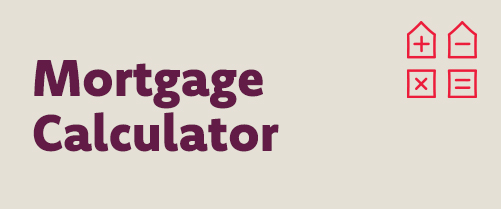How much does it cost to sell a house?
Last updated: 18/11/2021 | Reading time: 4 minutes
You’ve decided to move home. It can be tempting to head straight to the online property portals and start scrolling for your dream new house.
But, first things first, if you’re going to move, you’ll need to spend some time working out your budget. And when doing so, you mustn’t forget to factor in the additional costs involved in selling your house. There are lots of different fees and they can quickly add up.
Here are the most important costs to consider.
- Estate agent fees
- Solicitor fees
- Mortgage fees
- Energy Performance Certificate (EPC)
- Removal fees
In England and Wales, estate agents usually calculate their fee as a percentage of the final sale price of your home. This percentage usually ranges between 0.75% to 3% of the property price, plus VAT.
It doesn’t always work this way. Online estate agents usually charge fixed fees, which are cheaper.
Either way, don’t be shy about trying to negotiate a lower fee – you might find your estate agent is flexible.
Top Tip:
It’s worth shopping around to find the best value agent, but you shouldn’t just choose an agent based on their fee alone. You can use online tools, such as this one to compare agents based on their past performance. There are also several important questions to ask agents before you choose one.
Solicitors play a big role in the housing market, in a process called conveyancing. In a nutshell, their job is to provide the information you give them about the property to the buyer's solicitor. They’ll also support you in obtaining any additional information required.
A solicitor will also either charge you a flat fee or a percentage of the value of the property. Costs can vary hugely depending on how complex the transaction is, and can range from around £400 to £1,500. There are also additional costs that they’ll add on, including a copy of the title deeds, money-laundering checks and a bank transfer fee, but this should all come to less than £100.
Again, it pays to shop around. Linda Gale, a mortgage advisor and trainer at Principality Building Society, says: “Get quotes from several solicitors and be mindful of how they present their fees, as they often provide them in different formats, which can be quite confusing.” Don’t hesitate to call the solicitor and talk through the fees with them if you aren’t sure, Linda suggests.
Linda offers another important tip: “Once you’ve found a solicitor, check if they’re on your chosen mortgage lender’s approved list of solicitors. Otherwise you may not be able to work with them and it could delay your move.” Alternatively, if you already know who your mortgage provider is, then you could ask them for a list of approved solicitors in the local area to help narrow down your search.
Assuming you’re buying a new home at the same time as selling, then you’ll need to consider mortgage fees too.
There are a range of fees you might need to pay, including valuation fees, arrangement fees and more.
Linda says: “It’s a good idea to consider all costs. You can quite often find mortgage products that have a really low interest rate but charge really high fees.”
The mortgage market can be complicated, so a mortgage broker or lender can help you understand the fees you’ll need to pay and which mortgage products are right for you, with a level of mortgage repayments you can afford.
You may find that you can transfer your existing mortgage to your new property, if it is ‘portable’, so it’s worth checking with your lender.
If you’re selling your home, you’ll need an Energy Performance Certificate (EPC).
This tells potential buyers how energy-efficient your home is, based on a rating from A (very efficient) to G (inefficient). Your property’s EPC needs to be available to potential buyers as soon as you put your home on the market.
EPCs are valid for 10 years, so if you’ve lived in your home for less than a decade, you can use the existing EPC rather than paying for a new one.
Useful Websites:
If you live in England or Wales, the government website list organisations that are approved to produce an EPC for your home. Costs vary, between £60 and £120, so make sure you shop around.
In Scotland, you’ll need to visit the Scottish EPC Register to find a list of approved EPC organisations.
Removal fees are one of the biggest costs to foot when selling a home.
According to Compare My Move, in 2021 the average UK removal company costs for a 3-bed house travelling 50 miles are roughly £1,181. This includes professional packing services and materials (£250), as well as the dismantling and reassembling of furniture at your new home (£125).
“Get a few quotes and make sure you’re comfortable with the company”, Linda says. It can be helpful to ask friends and family if they have a removal company they’d recommend.














